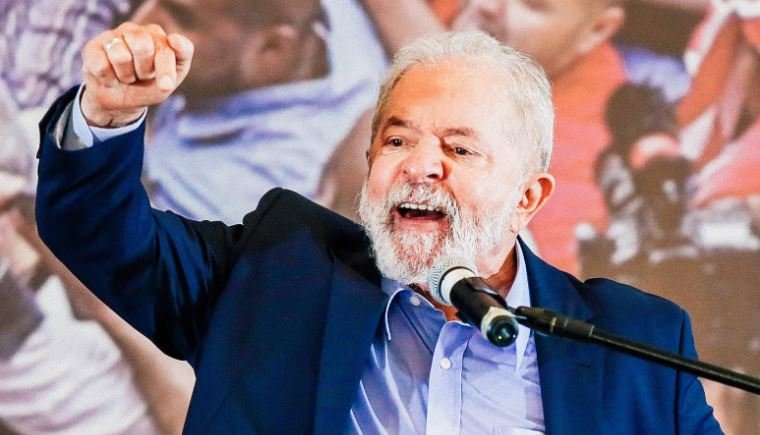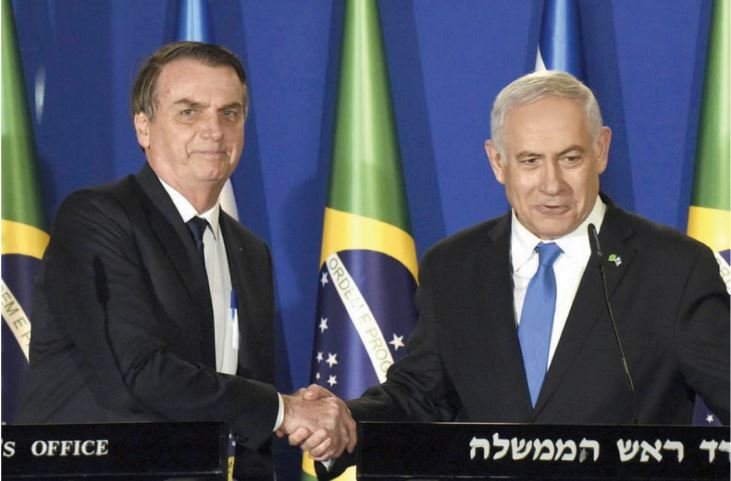Lula da Silva, a prominent political leader in Latin America, has been inaugurated as Brazil’s president for the third time in a ceremony held at the National Congress in Brasília. Following his inauguration in January, President Lula da Silva’s administration announced a significant change in Brazil’s foreign policy towards the Palestinian cause. After years of absence due to former President Bolsonaro’s pro-Israel policy, Brazil has once again taken a leading role in supporting the Palestinian cause in the region.
Since the start of his election campaign, Lula da Silva has made it clear that he believes the Palestinian cause deserves Brazil’s full attention and solidarity. He has emphasized that the Palestinian people have the right to live in a free and sovereign state, and he has committed to working towards re-establishing Brazil’s leading role in foreign policy as a mediator of conflicts and a defender of people’s right to self-determination.
YOU CAN ALSO READ: CIRCULAR ECONOMY A ROAD TO SUSTAINABILITY?
According to Marcos Tenorio, a political analyst in Brazil, Lula da Silva’s strong support for the Palestinian cause since taking office means that this issue will be at the forefront of Brazil’s political scene, as well as in Latin America as a whole. Tenorio believes that Brazil, under Lula’s leadership, will resume its role as a key advocate for the Palestinian people in the international community, bringing attention to the issue and seeking to ensure that the Palestinian cause is recognized and supported by other countries around the world.
LULA’S SUPPORT FOR PALESTINIANS
Lula da Silva, who emerged from poverty to lead Brazil’s economic transformation during his first two terms as President from 2003 to 2010, has long been a strong supporter of Palestinian rights. This support was evident early on in his presidency when, in December 2003, he visited Syria and advocated for the creation of a Palestinian state, causing tensions with Israel. A few months later, the Brazilian government opened a diplomatic office in Ramallah. In March 2010, Lula became the first Brazilian president to visit Israel and Palestine.
While visiting the West Bank, he said “I dream of an independent and free Palestine living in peace in the Middle East.” During his visit, Israel’s then foreign minister Avigdor Lieberman criticized him for visiting the grave of Palestinian leader Yasser Arafat, while deciding to skip paying tribute to Theodor Herzl, the founder of modern Zionism. Lieberman’s comments reflected the tensions between the two countries over Brazil’s increasingly pro-Palestinian stance under Lula’s leadership. As his presidency neared its end, Lula made the historic decision to recognize Palestine as an independent state based on the pre-1967 war boundary in December 2010.

“I dream of an independent and free Palestine living in peace in the Middle East.”
Lula da Silva
President of Brazil
This move by Brazil was followed by several other Latin American countries recognizing Palestine as well. Indeed, during Lula da Silva’s previous terms as President of Brazil from 2003 to 2010, he took several measures to support Palestine. In addition to recognizing Palestine as an independent state, he also worked to increase diplomatic representation between Brazil and Palestine. One example of this was the allocation of a plot of land near the Brazilian Presidential Palace for the Palestinian Embassy in Brasilia.

After Lula’s term as president of Brazil ended, his successor Dilma Rousseff, who was the first female president of Brazil, continued to pursue leftist policies. During her presidency, Brazil put pressure on Israel over its military operations in the besieged Gaza Strip. In particular, in the aftermath of the 2014 Gaza War, when Israeli forces were accused of using disproportionate force, Brasilia called back its ambassador from Israel. The following year, Israeli Prime Minister Benjamin Netanyahu appointed Dani Dayan as his country’s ambassador to Brazil. However, Rousseff’s government refused to accept Dayan, citing his affiliation with illegal settlements in the West Bank as the reason for their refusal making it one of the few countries to take such a steps.

BOLSONARO – A SUPPORTER OF ISRAEL
On the other hand, after assuming office in 2018, the conservative leader of the Liberal Party, Bolsonaro, who was inspired by Donald Trump and self-styled as a nationalist, promised to reverse decades of Brazilian foreign policy on the Israeli-Palestinian conflict. During his four-year term in office that ended in 2022, Brazil repeatedly expressed his support for Israel and voted against Palestine. In 2019, Bolsonaro announced his intention to relocate the Brazilian embassy in Israel to Jerusalem and recognize the city as Israel’s capital, a sensitive issue for Palestinian. However, Brazil ultimately did not follow through with the decision and instead opened a trade and investment office in West Jerusalem. In addition, Bolsonaro’s government actively sought to promote technological and military agreements with Israel. These moves sparked anger among Palestinians.
In May 2020, during the height of the coronavirus pandemic in Brazil, President Bolsonaro delivered a speech with the Israeli and American flags displayed in the background. This gesture was largely aimed at his Christian evangelical voter base, which has historically been supportive of Israel. In fact, evangelical Christians have become increasingly influential in Brazilian politics, and since 2018, they have emerged as a powerful political force. In his bid for re-election, Bolsonaro has sought to appeal to these voters by framing his campaign in biblical terms. Many prominent evangelical groups have thrown their support behind him, believing that the fate of Brazil is prophetically linked with that of Israel. According to their belief, the occupied West Bank is the biblical land of Judea and Samaria, and Israel has a historical right to the territory. It is therefore the adoption of Israeli symbols by evangelical Christians in Brazil has seen a significant increase, according to Berenice Bento, a professor at the University of Brasilia who researches human rights and the Palestinian issue. She notes that for these Christians, the “promised land” of Israel represents all that is good in the world.
In this backdrop, Jair Bolsonaro’s bid for re-election has garnered BOLSONARO – A SUPPORTER OF ISRAEL Netanyahu grips Brazil’s far-right Bolsonaro in Israel strong support from both Israeli Prime Minister Benjamin Netanyahu and former US President Donald Trump, who played a key role in strengthening ties between Washington and Tel Aviv during his time in office. Netanyahu said in a message tweeted by Bolsonaro ahead of the election, “Thank you President Jair Bolsonaro for your leadership in strengthening the alliance between the people of Israel and the people of Brazil. Under your leadership that relationship has never been stronger,” Bolsonaro, however, failed to reelect in the last election.
According to Marcos Tenorio, Bolsonaro has redirected Brazilian diplomacy to serve Zionist interests, but it would be more advantageous for Brazil to prioritize trade with Iran, which has been an important partner contributing over $8.5 billion to the economy between 2019 and 2021. He believes that Brazil should prioritize partnerships that benefit the country, while maintaining its relations with Israel. Ualid Rabah, the president of the Arab Palestine Federation of Brazil, echoed with Tenorio that Bolsonaro’s shift in foreign policy not only constitutes a political mistake, but has also resulted in economic losses for Brazil.
WHY PALESTINE IS IMPORTANT?
Today, Brazil is home to over 70,000 people of Palestinian origin, representing approximately 14% of Latin America’s nearly half-million population of Palestinian descent. This makes the Palestinian community in Latin America the largest diaspora outside the Arab world. Despite the Arabic influence in Brazil, many newly-arrived Palestinian refugees and Arabs have difficulty learning Portuguese. However, according to Eman Abu Sidu, a Gazaborn correspondent for the Middle East Monitor based in Brazil, Palestinians in Brazil have integrated successfully into the host culture, thanks to Brazil’s acceptance of difference, tolerance, and respect for others, regardless of race or creed. As a result, it is becoming increasingly difficult to identify Brazilian citizens of Palestinian descent in the country’s contemporary melting pot. Brazil’s Palestinians are a shining example of steadfastness, as they strive to balance their integration into Brazilian life while maintaining a connection to their language, culture, and homeland in Palestine.
‘Those in the community who are more connected to the Palestinian cause will certainly repudiate Bolsonaro’
Fatima Ali, vice-president of the Arab-Palestine Federation of Brazil
The Palestinian diaspora and Arab communities in Latin America, particularly in Brazil, have played an essential role in raising awareness about the Palestinian cause and advocating for their rights. These communities have contributed significantly to the Palestinian cause by organizing events, cultural activities, and fundraising campaigns to support their homeland. They have also established community organizations and associations to strengthen their political and cultural ties and promote solidarity with Palestine.
The convergence between these communities and left-wing political parties has encouraged the left to include the Palestinian cause on its agenda. The left in Latin America has a history of supporting social justice movements and anti-imperialist struggles, and the Palestinian cause fits well within this framework. As a result, leftwing parties in Brazil and other Latin American countries have shown solidarity with the Palestinian people and supported their struggle for self-determination.
In sum, these communities have played a crucial role in building bridges between Latin American and Palestinian civil society organizations. They have facilitated cultural and educational exchanges, organized visits to Palestine for Latin American activists, and supported campaigns against Israeli occupation and colonization. In this way, the Palestinian and Arab communities in Latin America have helped to forge global solidarity networks and build alliances with progressive forces. Brazil being home to roughly half of Latin America’s population, its leanings on the issue is expected to influence the rest of the continent.


